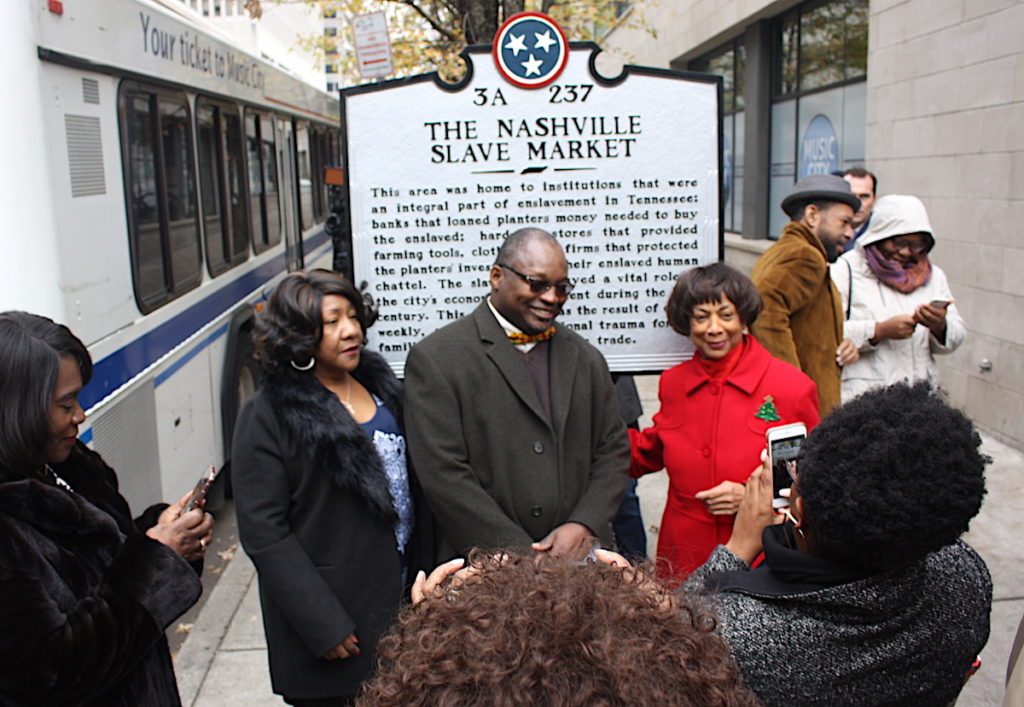
In 1860, more than 30% of Davidson County’s roughly 47,000 residents were enslaved. That’s nearly 15,000 people. As significant as those numbers are, they underlie another, equally unsettling truth: Nashville was a key location in the sale of enslaved people.

Advertisements for enslaved people were regularly published in local newspapers. This ad ran in the National Banner and Nashville Whig on April 10, 1835.
Slavery was a booming business in our city, and helped enrich families whose names are among the most recognizable in Nashville. In this episode we explore this history, how its legacy still echoes in our city, and what we still don’t know — including a trip to uncharted Hill’s Island on the Cumberland River.
But first, the nonprofit Historic Nashville, Inc. released its Nashville Nine. At the top of the show, we’ll rundown the endangered properties on this year’s list.
Guests:
- Tony Gonzalez, WPLN special projects editor
- Brian Mansfield, Historic Nashville, Inc. president
- Dr. Learotha Williams, professor of African American and public history, Tennessee State University
- Dr. Carole Bucy, Davidson County historian
Related reading:
- TSU Professor Battles ‘Concerted Effort To Erase Black People’ From Nashville History
- Juneteenth: A Nashville Historian Sees Slavery As Only ‘Two Grandmas Away’
- Belle Meade Plantation Hires A Black Historian, Giving Voice To Long-Silenced Slaves
- On A Downtown Corner, A New Marker Acknowledges Nashville’s Slave-Trading Past


